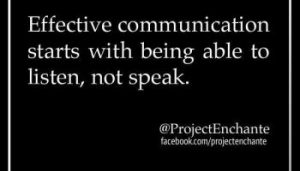I was talking with a friend this morning about Gary Chapman’s, The 5 Love Languages concept. I was relaying a discussion I had with another friend who is married to a man with Asperger’s Syndrome. Because the wife knows her husband can’t read her emotions, she has taken to writing down things she would like for him to do on a daily basis. For example, “Today is my birthday. I would like for you to buy me a gold bracelet you think I might like, say, ‘Happy Birthday’ to me and give me a hug and a kiss.” or “I would like for you to tell me one reason you love me today.”
At first glance, this feels kind of odd and unnatural. But as I was talking about this concept this morning, we started adding in things like, “Today I would like for you to unload the dishwasher.” and “Today I would like for you to squeeze my tush!” We started having a lot of fun with it. Which led directly to the 5 Love Languages. How cool would it be to have a daily “task” for couples to show their love for each other in a variety of ways? So, as a result of this conversation, I will commit to making this happen for those who want to follow and participate. My current goal is to post something on my blog minimum of 2 times a week. Some future posts might look like this:
Person A: Today I will draw a bath for my partner.
Person B: Today I will kiss my partner for 2 minutes without pulling away.
Person A: Today I will do the dishes.
Person B: Today I will give my partner a sweet greeting card or note.
Use these daily tasks to learn and understand what is most meaningful to you. Record what makes you feel the most loved!
Follow me and let’s see how this goes!













